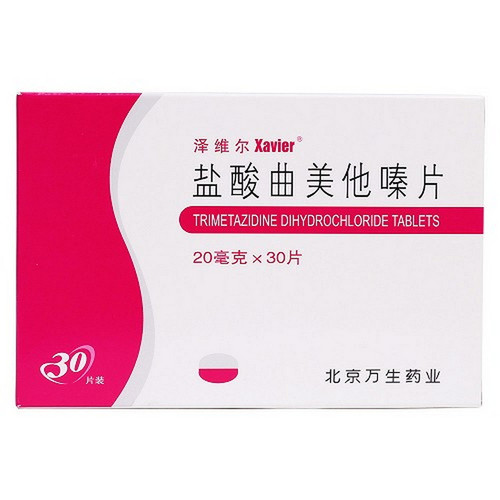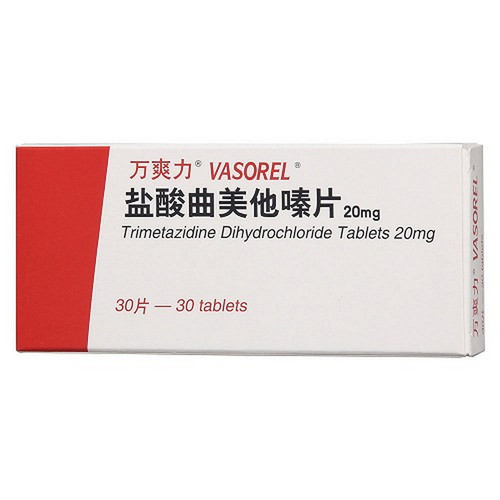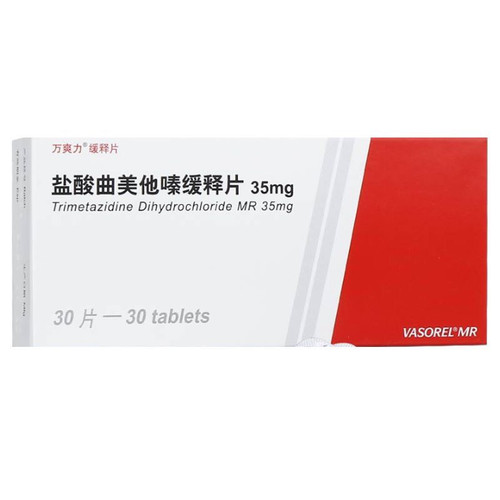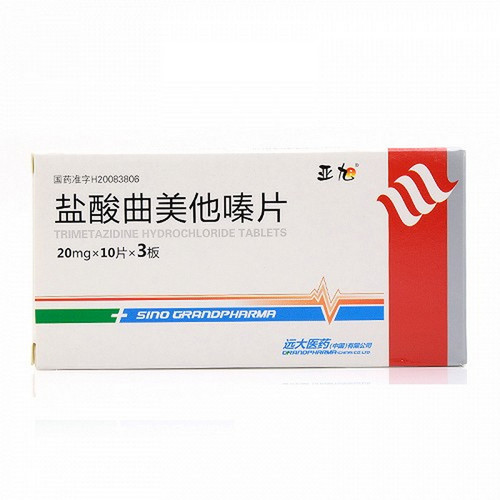Product Overview
[Drug Name]
Generic Name: Trimetazidine Hydrochloride Tablets
Trade Name: Aiyiling Trimetazidine Hydrochloride Tablets 20mg x 30 Tablets
[Main Ingredient]
Trimetazidine hydrochloride.
[Properties]
This product is a film-coated tablet that appears white after the film coating is removed.
[Indications/Main Functions]
Preventive treatment of angina attacks. Adjunctive symptomatic treatment of vertigo and tinnitus.
[Specifications]
20mg x 30 tablets (Aiyiling)
[Dosage and Administration]
Oral, one tablet three times daily, with meals.
[Adverse Reactions]
Rare gastrointestinal discomfort (nausea, vomiting).
[Contraindications]
Contraindicated in patients with allergies to any of the components of this product. This product is generally not recommended during breastfeeding (see Use in Pregnant and Breastfeeding Women).
[Drug Interactions]
To avoid potential interactions between different medications, you must inform your doctor or pharmacist of any other treatments you are taking.
[Precautions]
This drug is not intended for symptomatic treatment of angina or for the initial treatment of unstable angina or myocardial infarction. It should not be used for treatment before or during the first few days after hospitalization. During an angina attack, coronary artery disease should be reassessed, and treatment adjustments (medication and possible revascularization) should be considered.
[Pediatric Use]
This study has not been conducted, and no reliable references are available.
[Elderly Use]
This study has not been conducted, and no reliable references are available.
[Overdose]
Take this drug exactly as prescribed. If you believe this drug is too strong or too weak, consult your doctor. If you suspect you have taken more than the prescribed dose, contact your doctor immediately. If you miss a dose, take the regular dose as originally prescribed for the next dose. Do not take a double dose to make up for a missed dose.
[Pharmacology and Toxicology]
Trimetazidine protects cellular energy metabolism during hypoxia or ischemia by preventing the decline in intracellular ATP levels, thereby ensuring the normal function of ion pumps and transmembrane sodium-potassium flux, and maintaining a stable intracellular environment. Animal studies have shown that trimetazidine helps maintain energy metabolism in the heart and sensory organs during ischemia and hypoxia; reduces intracellular acidosis and ischemia-induced changes in transmembrane ion flux; reduces the migration and infiltration of polynuclear neutrophils during ischemia and myocardial reperfusion, and reduces experimental infarct size; all without significantly affecting hemodynamics. Human studies have shown that trimetazidine can: increase coronary blood flow reserve, thereby delaying the onset of exercise-induced ischemia starting from the 15th day of treatment; limit rapid blood pressure fluctuations without significantly altering heart rate; significantly reduce the frequency of angina attacks; and significantly reduce the use of glyceryl trinitrate.







